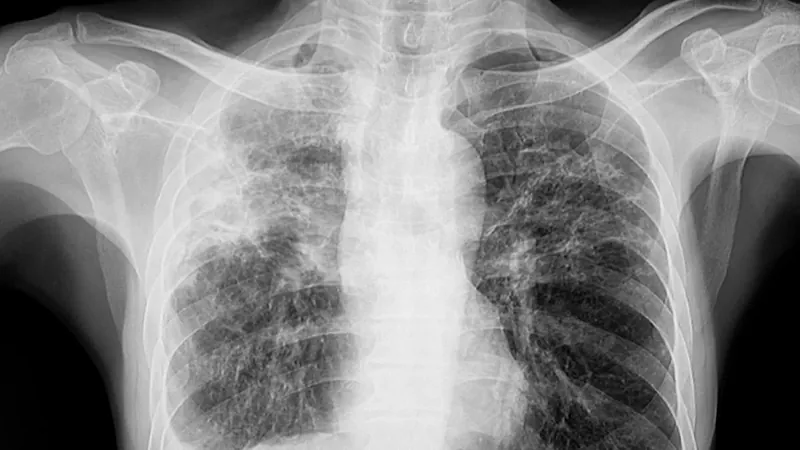
Panic Erupts as Maine Battles Rise in Tuberculosis Cases: What You Need to Know
2025-09-05
Author: Kai
Maine on High Alert Amid New TB Diagnoses
Concerns are escalating in Maine as three individuals have been confirmed with active tuberculosis (TB), identified as one of the deadliest diseases worldwide. Disturbingly, these patients appear to have contracted the disease from different sources, raising alarm about the potential for broader community spread.
All cases are located within the Greater Portland area, and health officials are rushing to trace and isolate anyone who may have been in close contact with these patients. This recent spike in TB cases in the U.S. underscores a worrying trend, with over 10,300 cases reported in 2024 alone—an alarming 8% increase from 2023 and the highest figures since 2011.
Why Tuberculosis is a Global Killer
The World Health Organization lists tuberculosis as the leading infectious disease globally, responsible for approximately 1.25 million deaths each year, predominantly in developing nations. TB can have a staggering fatality rate—up to 50% without proper treatment. For comparison, the death rate from COVID-19 hovers below 1%, while untreated measles can reach up to 10%.
Historically, TB was a virtual death sentence in the 18th and 19th centuries, but advancements in vaccines and antibiotics have shifted the narrative. While fatalities from TB in the U.S. once exceeded 16,000 annually in the 1950s, that number has dramatically decreased to about 550 today.
Maine’s TB Situation: What You Should Know
As of now, Maine's CDC has disclosed 28 reported cases of tuberculosis in 2024, slightly less than the 39 cases seen last year. While the situation is dire, officials assure that these cases do not yet classify as an outbreak—typically defined as more cases than expected in a specific area.
Symptoms residents should watch for include a persistent cough lasting over three weeks, unexplained weight loss, fever, night sweats, and in more severe cases, respiratory difficulties and organ damage.
Expert Insights: The Risk is Low for Most
Dr. Dora Anne Mills, MaineHealth’s chief health improvement officer, emphasized that TB is primarily transmitted through prolonged close contact—meaning the general public isn’t at significant risk. "It’s not spread through casual interactions like shaking hands, and it’s far less contagious than influenza or COVID-19," she clarified.
Speculation regarding a potential link to a local asylum shelter has surfaced, but officials have found no evidence to support this theory.
Vaccine and Treatment Options
Healthcare professionals can treat TB effectively with antibiotics and provide vaccinations with the BCG vaccine, mainly administered in developing countries. Although it’s not routinely offered in the U.S., parents can request it for their children, leading to a typical scar that indicates effective vaccination.
In conclusion, while vigilance is essential, Maine residents are advised to remain calm and informed. The main takeaway? Tuberculosis, while serious, poses a low risk to the vast majority of the population.


 Brasil (PT)
Brasil (PT)
 Canada (EN)
Canada (EN)
 Chile (ES)
Chile (ES)
 Česko (CS)
Česko (CS)
 대한민국 (KO)
대한민국 (KO)
 España (ES)
España (ES)
 France (FR)
France (FR)
 Hong Kong (EN)
Hong Kong (EN)
 Italia (IT)
Italia (IT)
 日本 (JA)
日本 (JA)
 Magyarország (HU)
Magyarország (HU)
 Norge (NO)
Norge (NO)
 Polska (PL)
Polska (PL)
 Schweiz (DE)
Schweiz (DE)
 Singapore (EN)
Singapore (EN)
 Sverige (SV)
Sverige (SV)
 Suomi (FI)
Suomi (FI)
 Türkiye (TR)
Türkiye (TR)
 الإمارات العربية المتحدة (AR)
الإمارات العربية المتحدة (AR)